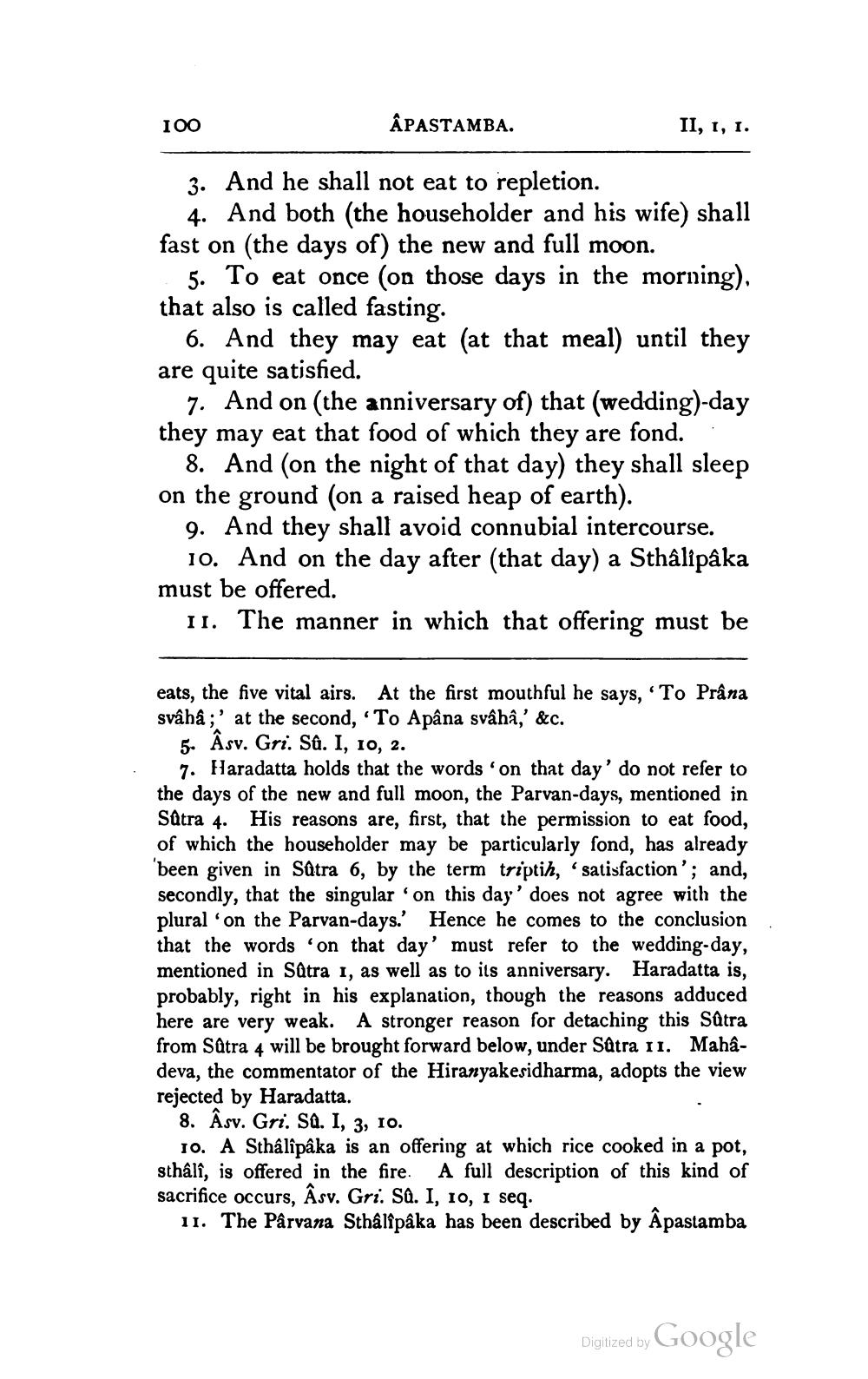________________
100
ÂPASTAMBA.
II, 1, 1.
3. And he shall not eat to repletion.
4. And both (the householder and his wife) shall fast on (the days of) the new and full moon.
5. To eat once (on those days in the morning). that also is called fasting.
6. And they may eat (at that meal) until they are quite satisfied.
7. And on (the anniversary of) that (wedding)-day they may eat that food of which they are fond.
8. And (on the night of that day) they shall sleep on the ground (on a raised heap of earth).
9. And they shall avoid connubial intercourse.
10. And on the day after (that day) a Sthâlipâka must be offered.
11. The manner in which that offering must be
eats, the five vital airs. At the first mouthful he says, 'To Prâna svâhâ ;' at the second, To Apâna svâhâ,' &c.
5. Asv. Gri. Sû. I, 10, 2.
7. Haradatta holds that the words on that day' do not refer to the days of the new and full moon, the Parvan-days, mentioned in Sätra 4. His reasons are, first, that the permission to eat food, of which the householder may be particularly fond, has already 'been given in Sätra 6, by the term triptih, satisfaction'; and, secondly, that the singular 'on this day' does not agree with the plural on the Parvan-days. Hence he comes to the conclusion that the words 'on that day' must refer to the wedding-day, mentioned in Sätra 1, as well as to its anniversary. Haradatta is, probably, right in his explanation, though the reasons adduced here are very weak. A stronger reason for detaching this Sutra from Sätra 4 will be brought forward below, under Satra 11. Mahâdeva, the commentator of the Hiranyakesidharma, adopts the view rejected by Haradatta.
8. Âsv. Gri. SQ. I, 3, 10.
IO. A Sthâlîpaka is an offering at which rice cooked in a pot, sthali, is offered in the fire. A full description of this kind of sacrifice occurs, Asv. Gri. SQ. I, 1o, I seq. 11. The Pârvana Sthâlîpâka has been described
tamba
Digitized by Google




